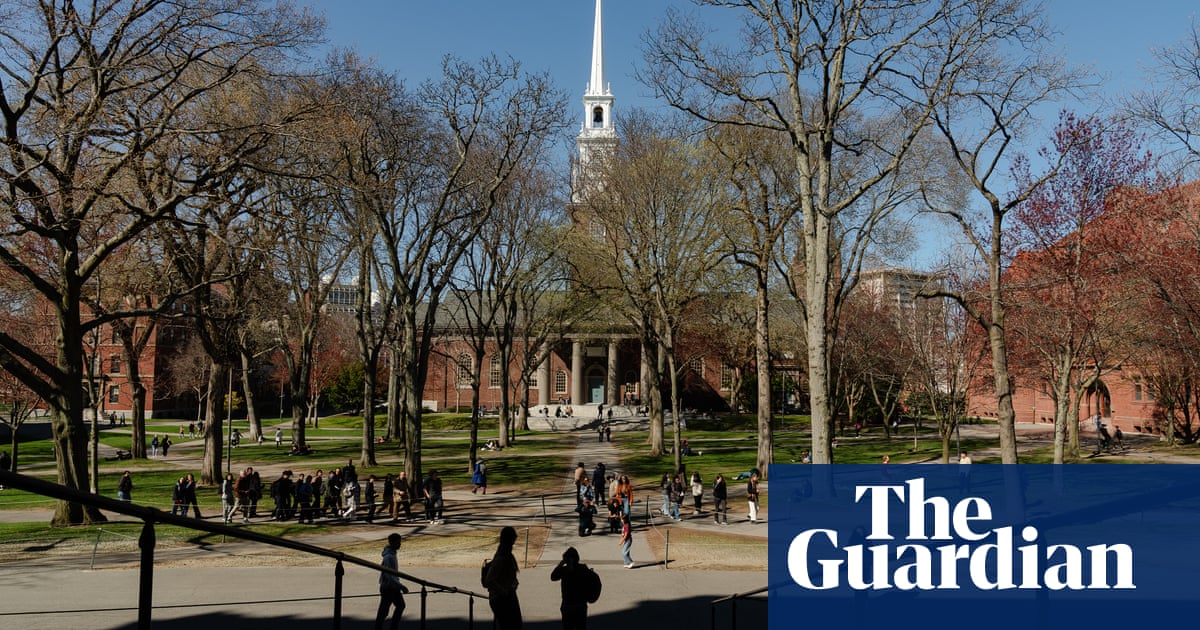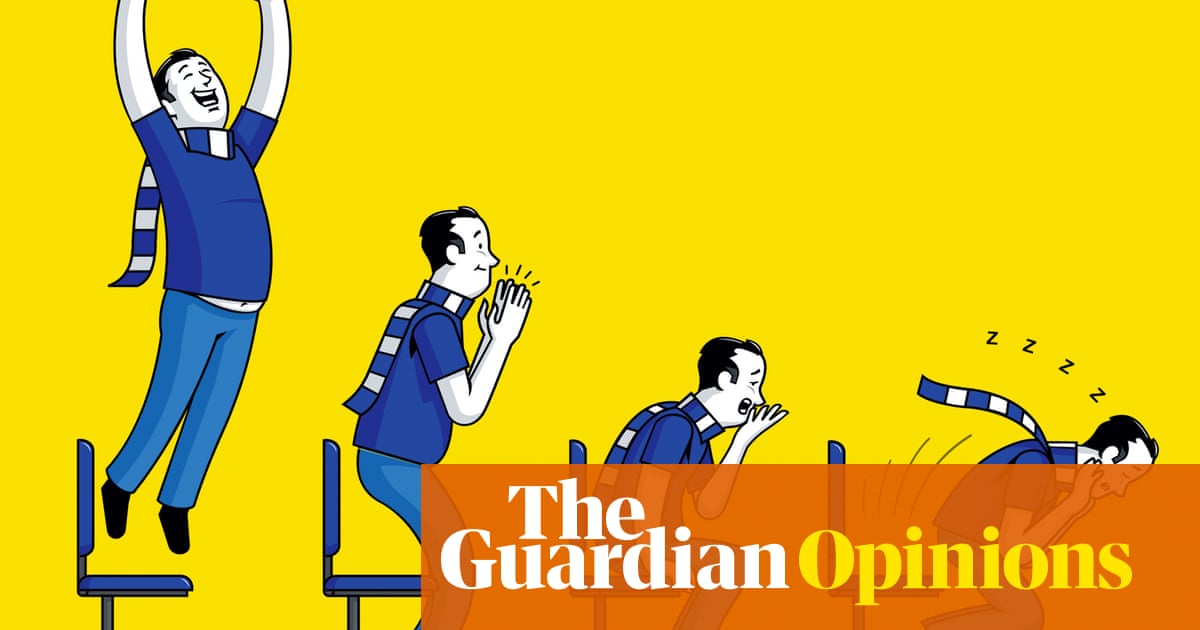Tommi has been a living statue for 20 years, endeavouring to stay rooted to the spot amid hailstones, loose dogs and teasing teenagers.
But even he was moved by the news that Leicester Square would no longer host street performers, calling time on one of London’s most renowned tourist-friendly quirks.
Musicians, mimes and magicians will on Thursday be forced to vacate the area – leaving nothing but the sound of passing traffic and its famous Shakespeare fountain – after Westminster council was “left with no choice” but to bring in a controversial ban due to noise complaints.
Tommi has reason to feel especially aggrieved, as his act makes no sound at all. The Guardian met him dressed as a golden Charlie Chaplin, but he has many other costumes, including a cowboy and a Viking.
“We give everything here,” he said. “Even if we are sad, we smile to the children. It’s not an easy job because the costume is really cold in the winter, and in the summer it’s too hot in the makeup.”
Nor is it an easy gig for those who don’t have to spend 45 minutes covering themselves in gold body paint every morning.
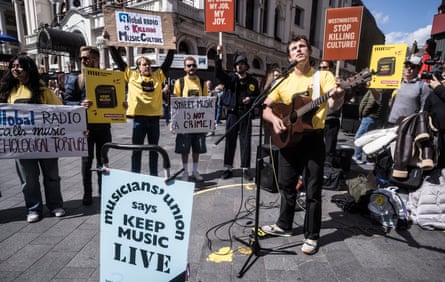
“The epitome of busking in London is Leicester Square,” said Myles Crossley, 28, who treated passing pedestrians to one last rendition of Coldplay’s Yellow on Wednesday afternoon. “We live in a TikTok world now where everyone’s getting their dopamine from these quick, five-second videos. It’s so nice for people to come together organically to hear live music. To lose that is pretty sad.”
The loss comes as Westminster Council, the local authority responsible for the tourist honeypot, said it was “left with no choice” but to introduce a ban on street performers after a magistrate ruled last month that amplified – and often repeated – performances by buskers in the square were a public nuisance akin to “psychological torture”.
Global Media, a firm best-known for its string of commercial radio stations, brought the case against the council after staff were reportedly left taking calls in cupboards to escape the incessant noise. According to The Times, repeated renditions of Neil Diamond’s Sweet Caroline were a particular bugbear.
“I don’t know a single busker who plays Sweet Caroline,” laughed Ben Vibart-Dixon, who has been busking in the square for the past seven years. “We all hate it! It’s the sort of song we get asked to play at pub gigs because we have to.”
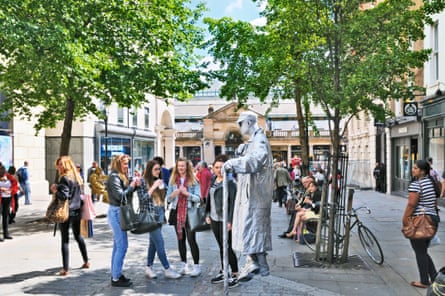
Like many performers, Vibart-Dixon gets to the pitch every day for 9.00am, where a queueing system operates on a first-come-first-served basis. He said competition at Westminster’s remaining 26 pitches, including nearby Covent Garden, will be intensified by the ban.
He added: “It’s going to get ridiculous in the summer. Last year people were turning up at 7.30am in Leicester Square, and now this year it’s going to be worse. It’s going to become hard to make a living.”
A decent living it can be – that is, on a good day. “If you’re a good performer it can be quite remunerative,” said Luke Silva, an Italian musician with 1.77 million YouTube subscribers. “This platform gave me everything that I’ve achieved. It’s an opportunity of a lifetime and new musicians and new artists are not going to be able to take advantage of it.”
“We have to deal with so many things – people heckling us, the weather – it’s really tough,” said Agustin, a 28-year-old singer originally from Argentina. “Sometimes it rains, sometimes it’s really hot, sometimes you can’t play because there’s an event like a film premiere. Sometimes people steal your money … That happened to me last week, actually.”
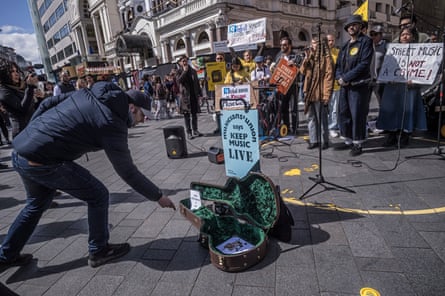
Unions including Equity and the Musician’s union are calling on the council to appeal against the ruling, but Westminster Council said it is still weighing its options. “Westminster’s a very unique place to live and visit,” said Aicha Lees, Westminster Council’s deputy leader. “So we want to always strike a balance between our businesses and our residents. We understand that buskers are a vital part of the West End.”
Lees said officers will patrol the area “round the clock” to ensure that rogue performers are issued with a warning. It will come as no comfort to those whose livelihoods rely on two 45-minute performances per day in the square.
“This has been the happiest time in my life,” said Agustin. “I’m happy to say I do what I love for a living and I hope they don’t take it away from me.”

.png) 1 day ago
9
1 day ago
9







